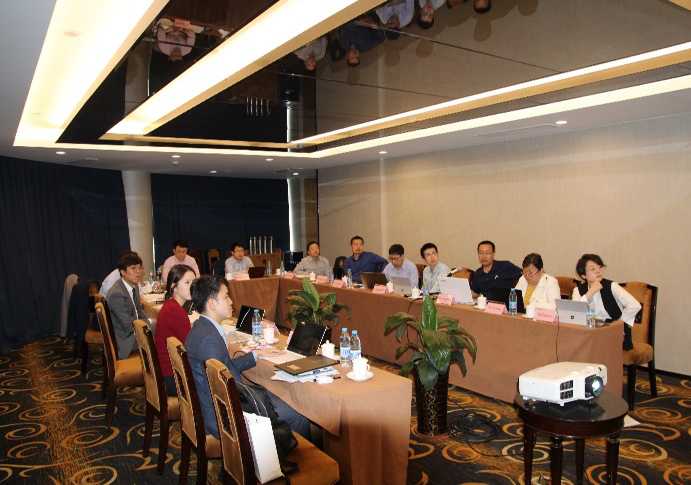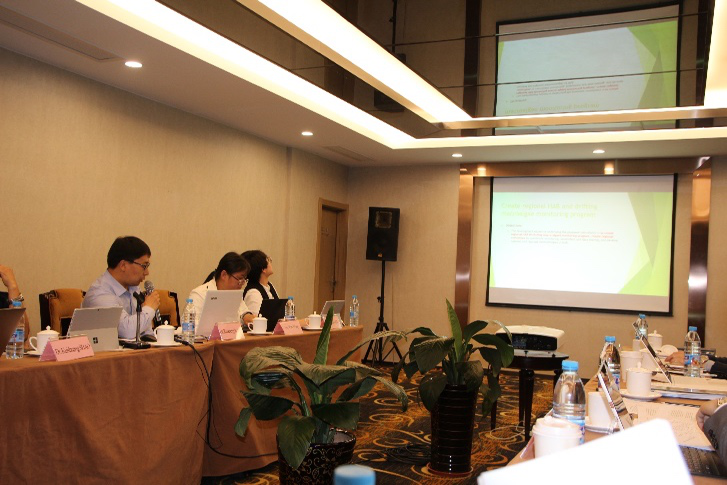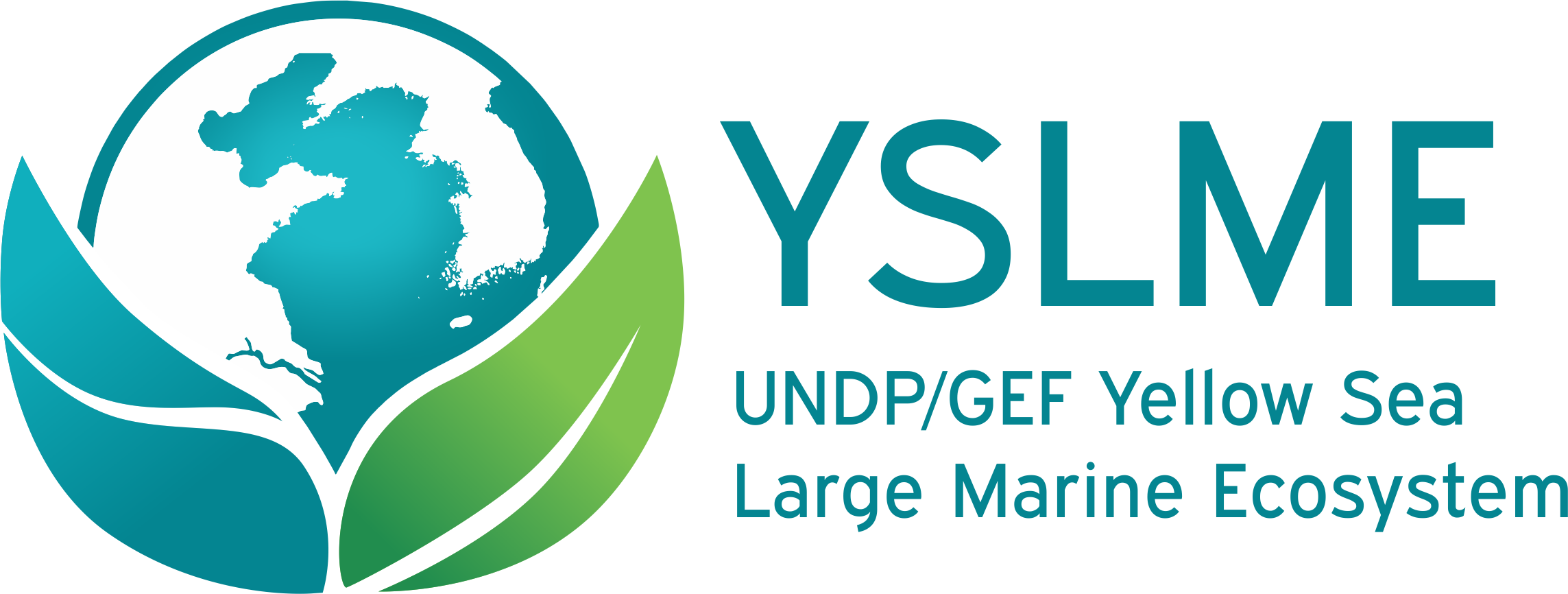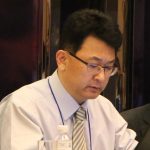An Ad-Hoc Expert Meeting of the Regional Working Group on Assessment and Monitoring (RWG-A) was held at the Sophia Hotel, Qingdao, PR China, May 10, 2019. The meeting was attended by 14 participants including members of the Regional Working Groups (RWG) from PR China and RO Korea, the National Coordinator of RO Korea, the Korea Marine Environment Management Corporation (KOEM) and the YSLME Phase II Project Management Office (PMO). The meeting was chaired by Mr. Shouqiang WANG from First Institute of Oceanography of the Ministry of Natural Resources of PR China and co-chaired by Mr. Sangjin LEE from the PMO of the UNOPS.
Considering the limited time remaining before the project terminates in late 2019, meeting participants agreed on the importance of successful implementation. The status of the implementation of three key activities listed in the 2019 workplan were then reviewed. Experts from both countries offered suggestions and shared views on how to achieve the targets for each activity within the available time frame. Reflecting on the comments and suggestions made, there was general consensus that more effort would be placed on implementation of activities.
The following activities were discussed: (1) Activity 2: Creation of a regional jellyfish monitoring program and a regional committee to coordinate monitoring, assessment and data sharing; (2) Activity 3: Creation of a regional HAB (including macroalgae) monitoring program and a regional committee to coordinate monitoring, assessment and data sharing. Establishment of a jellyfish committee to develop national and regional monitoring methodologies of HAB; and (3) Activity 4: Establishment of a comprehensive regional monitoring system and development of regional monitoring strategies for N/P/Si changes, climate change, jellyfish blooms and HAB.
As suggested by a Korean expert, meeting participants then discussed the possibility of future joint monitoring activities to study jellyfish distribution and abundance in the Yellow Sea. They also discussed possible methodologies for monitoring systems including sampling sites and frequency of sampling and information sharing. In particular, participants reiterated the need for and value of creating a mechanism which will enable both countries to share new data that will contribute to conservation of the Yellow Sea.












